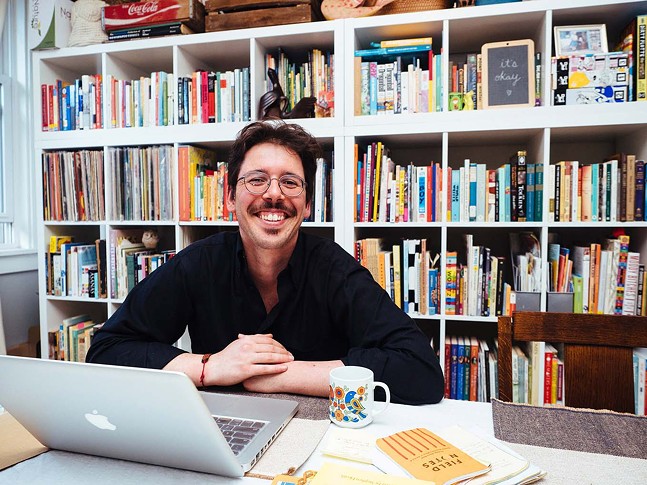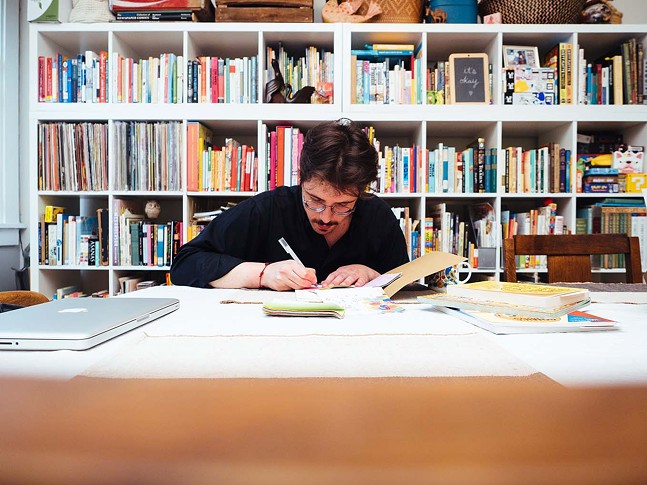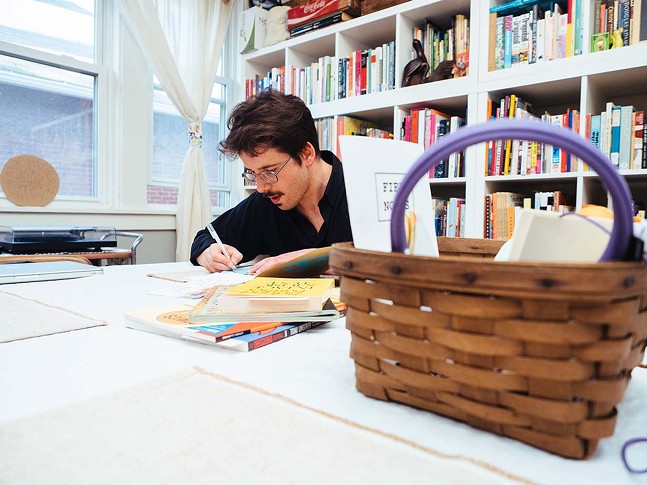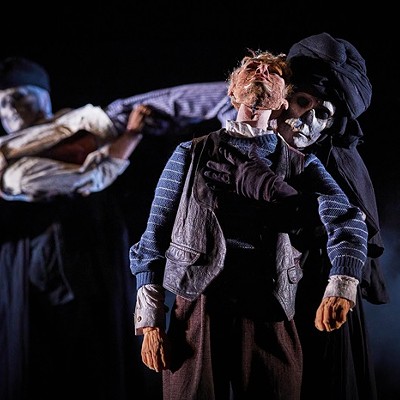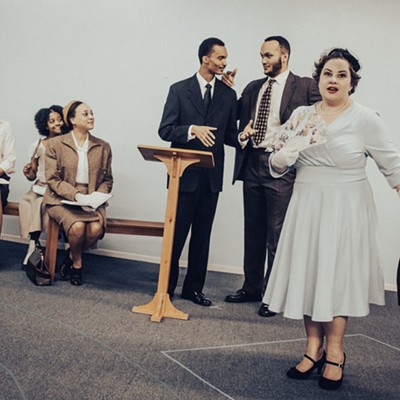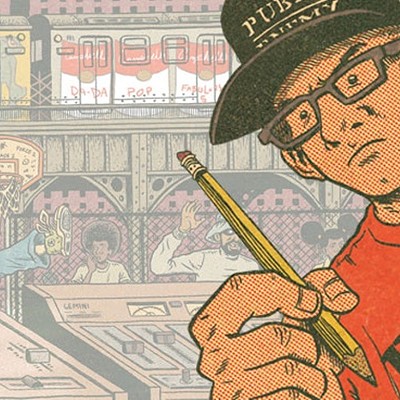Name: Juan José Fernández, Greenfield
Title: Comics Community Organizer
It manifests in a lot of ways. I partner with a bunch of different people and organizations, but at the heart of it, the goal is to motivate comics making and reading in Pittsburgh, particularly across the whole spectrum of what comics as a medium can actually do — not just focused on a pop-culture, solely entertainment space.
What does this entail?
A Carnegie Library of Pittsburgh book club, reading a different comic or graphic novel every month. The first Wednesday of the month, a get-together at Kaibur Coffee, leading people through comics-making exercises for two hours. Comics made during that time are included in a monthly zine available for free.
I run, as the managing editor, the website Comics Workbook. This was started by [Pittsburgh-based cartoonist] Frank Santoro, who’s not involved anymore and passed the baton to me. That space is for comics makers by comics makers: reviews, essays on having a day job and making comics, making comics about depression, how you do autobiographical comics, artist profiles, daily strips ...
All of this is infrastructure building for people to make and disseminate work and also come together.
What initially attracted you to comics?
Comics were the way I found myself becoming an active reader. I’m from Venezuela and when I came to the U.S., I really struggled with reading. I would read Garfield and Spider-Man and was reading more and more and more, but I wasn’t a maker.
How did that change?
I discovered Copacetic Comics in Squirrel Hill, run by Bill Boichel. Bill gave me a brochure for this school in Vermont, the Center for Cartoon Studies. I was reading more and more comic books, and I was really enamored by this brochure. “Wait, there’s so many different ways to approach comics making!” I went to Vermont, did a two-year MFA while self-publishing, then came back to Pittsburgh.
How has doing this professionally changed how you approach comics as a reader?
I experience them differently but still with tons of pleasure, reading, and making. The pleasure that I got when reading comics originally was always in deconstructing and reconstructing, and I continue to experience that. When working with a student, I like to break apart their work in my mind to understand what is useful for me to tell them. When I’m experiencing something I’m reading, it’s like, “What’s this doing really well? Wow, this really is firing on all cylinders!” I love formalism intersecting with intuition.
Is the expectation that everyone participating in activities will become a comics artist?
The idea is to push comics-making as a practice in combination with other things that you do in your life. It supplements and augments and allows you a deeper, richer experience of life itself. Learning to play an instrument can enrich your life and enrich how you experience music. Learning comics allows you to have a much deeper way of experiencing narrative, visual culture, writing, drawing, all of those things. It gives you a way of kind of capturing your life in books.
What do people need to know about comics?
In this explosion of content using the medium of comics, there’s a comic out there for everybody. If you want to read a biography of André the Giant, that exists. If you want to read a comic exploring a philosophical treatise on Heidegger, that exists. If you want to read autobiographical comics by immigrants, that exists.
Do you think people know that?
I wish more people knew that.

